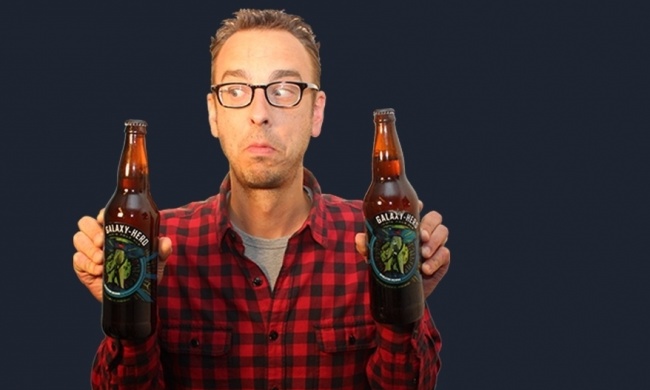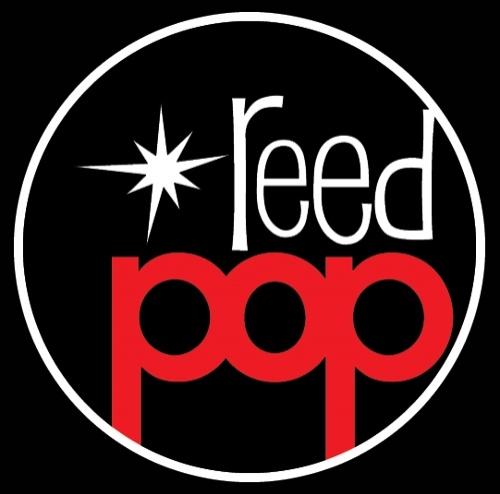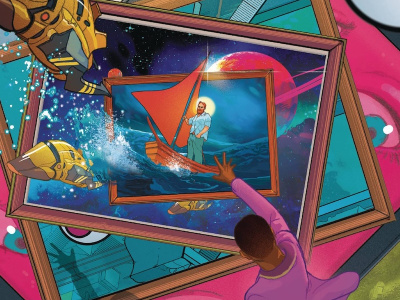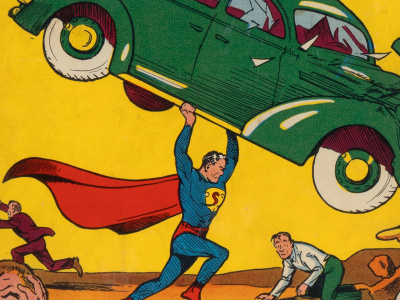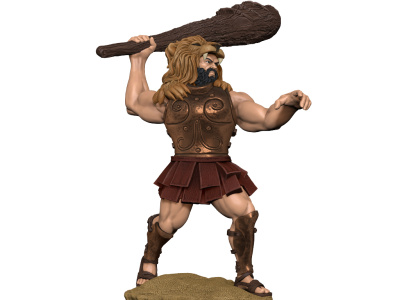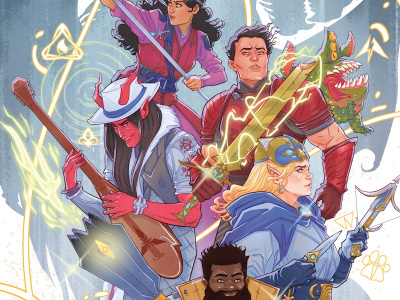How did New York Comic Con go [last October], and how was the attendance?
I believe we were at 167,000 total. We grew a little bit by going to a full day on Thursday where before we’d been doing partials so that opened up some inventory for us. I actually felt the show went as smooth as it’s gone in terms of logistics, which is what we look at a lot.
I think the content was strong. We want even stronger content but we saw a lot of growth in television content in particular. Not as much growth in film; maybe there’s a slight drop-off in film. In general we stayed true to the core of comic programming, and comic guests, that segment outnumbering everybody. It’s always sweeter with time, but I felt it was very strong.
You’ve said in previous interviews that your current badge system gives you more information than before (see “Interview with ReedPOP’s Lance Fensterman”). Were you able to apply what you have learned about how the four-day badge people attended by, for example, selling more single-day passes on the slower days?
It’s a good question. This is the third year using RFID. We found that the level of busyness didn’t need adjustment. We didn’t see any gaps there, where ‘this time at this day’ is quiet. We feel like the number of people in the building is plenty so we haven’t adjusted those quantities at all. In fact, in theory, the same number of people each day were in the building. It hasn’t gone up. By adding that Thursday is where we got the growth largely.
We haven’t done a lot with that. We did however look very hard at cashless pay systems, which are very possible with RFID. We’ve felt like with the age of data, and data sensitivity that it might be too big of a leap to putting cash on those RFID chips.
You mean, pay with your badge?
Correct. It’s a possibility that we will continue to consider but it would be a big undertaking.
Then you’d get more interesting data?
Correct. You get to see spending habits and things like that, but it’s a big undertaking, with a lot of security work that would have to be done.
So what’s next, Wednesday night?
[Laughs.] I think what’s next is we need to expand out into the city before we think about extra days. We took out the Hammerstein Ballroom for New York Comic Con programming. We need to start finding other venues around the city that we can really bring content to and bring fans to as an official part of the show. We’ve been starting to find new venue possibilities and how we would make sure the content is a strong draw for fans.
How does that relate to overall attendance? Do you capture information on people who buy tickets to the offsite events?
We don’t really. We have Super Week, which is that weeklong festival that surrounds the show and we don’t count those people. We haven’t kept track of the attendance on that, but otherwise if we take out two other theaters that are New York Comic Con venues, your New York Comic Con ticket gets you into those venues.
So it would take some people off the floor, theoretically?
It would and it would spread the crowds a little bit. I don’t think we would do anything with our ticket sales numbers, meaning we wouldn’t sell more if we spread out, at least not in the first year. After a year or two if we are in 10 venues, spread out all over Manhattan, then I think we would certainly be looking at our ticket sale numbers and what we think is appropriate.
Before New York Comic Con, there were concerns raised about artists in artist alleys using intellectual property that they may not have rights to and whether there would be a crackdown. Did anything happen at this show related to this issue?
Not to my knowledge. We always work closely with our partners, and anyone that has a concern about the legitimacy of content we investigate it and we have a pretty clearly defined policy which is we don’t have to give anyone a second chance or a warning. If there is a concern about the legitimacy or rights to content, that we can substantiate, we deal with that pretty seriously. And we self-police as well, but nothing was floated up from any of our customers saying ‘please be more aggressive’ or ‘we want to go check’ or anything like that.
There has been growth in the number and size of shows with some consolidations and some players beyond Reed rolling up some of these shows. What’s your feeling of where we are on the curve, on the maturity level, of the geek culture show business in North America?
On one hand I would say the market for these sorts of events is starting to saturate; however fans will go to a show every weekend if it’s a cool show. I think the saturation is more so on the side of content and by content, I mean exhibitors, brands, guests, studios. They don’t need that many shows. If you can create a compelling event without relying on brands and guests and that content, fans will come, but it’s got to be a cool show. So I say it’s consolidating, but with a bit of a caveat there. I also think consolidation is not done; in fact it will probably accelerate in some places. You’re going to see probably a handful of entities that will hold the majority of the larger events, would be my prediction.
So it comes down to how many shows can Norman Reedus do?
Or how many shows does Marvel really want or really need to promote to the fan base? Or pick any brand—Activision, same question. The other side, the dealer guys, whether they’re selling comics or toys or videogames, they’ll go to any show where there’s an audience that they can sell product to. Fans don’t want to pay a ticket price to come in to spend money. There needs to be content that is engaging, exciting and unique. And there’s a limited quantity on that.
ReedPOP has been doing more shows around the world. Are there more opportunities for growth outside the U.S. than inside?
Yes. In fact ReedPOP now has more events outside the U.S. than we do inside the U.S. They’re smaller events because they’re younger but it’s a little more open in the rest of the world. There again, you’re starting to see larger entities, one in particular that’s being very aggressive entering the space and acquiring the events in Europe in particular. That will consolidate a little more quickly I would think. There’s a proven model that these organizations can look at and say this is a good marketplace, and they’ll be more aggressive about entering.
Who’s rolling up in Europe?
It’s a European company called Artexis Easyfairs. They’ve been aggressively acquiring some businesses in Europe.
What was the best of your worldwide or newer shows in 2015?
Interestingly it was Vienna. Vienna, Paris, Shanghai were all launched last year. Both Paris and Vienna were really strong; they both sold out of tickets in advance, that we capped. Vienna, which we started from scratch, just had a really, really great vibe. It was a really well built show. I’m really proud of it. It was like ‘the little show that could’ and did.



